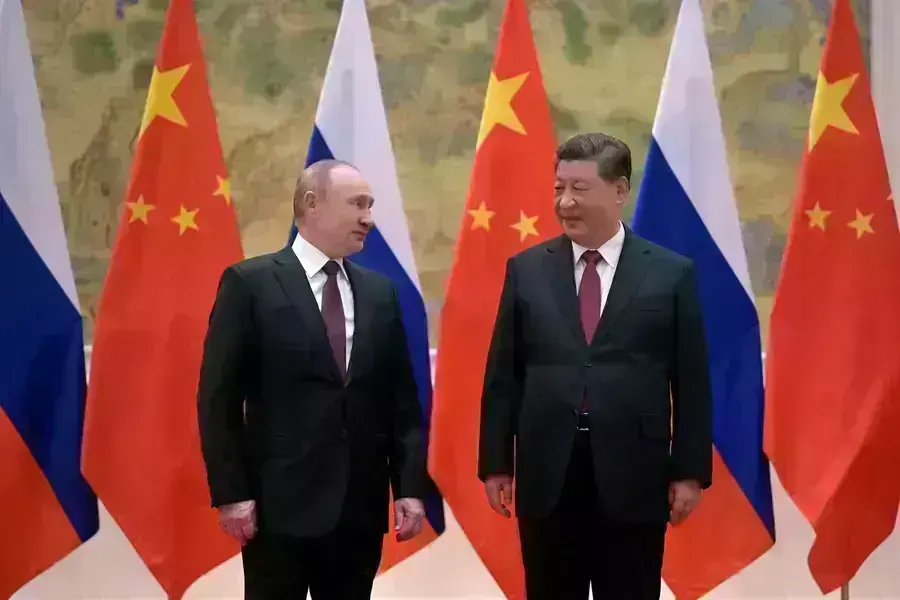How Russia and China Learn From Each Other on Disinformation

In the Ukraine war, Russia has tried not only to suppress information about the war at home, but to push disinformation about the conflict into Ukraine, and onto many major global social media outlets. These efforts have not always been successful, in part because the Biden administration and other allies have been effective in “pre-butting” the Russian disinformation, and in part because of a crackdown by social media companies—but Russia continues to wield disinformation as a powerful weapon about the conflict.
Beijing has increasingly followed Moscow’s lead on releasing information on the conflict. It has censored content on the conflict coming into the Chinese internet, and is using its state media at home to essentially present Russia’s views. China also may be spreading disinformation about the conflict on WeChat at home, and possibly on Chinese social media networks abroad.
More on:
This Russia-China collaboration in information and disinformation operations has been building for some time. Russia’s techniques can be traced back at least to the war between Russia and Georgia in 2008. Moscow used an extensive disinformation campaign to claim that Georgia was committing major human rights violations against Russian speakers inside Georgia. At that time, many leading democracies barely understood Moscow’s use of sharp power and were unprepared to respond. Russia then used this disinformation campaign, to which Georgia (and also these external actors) responded slowly, as justification for an invasion of the country, and then an occupation of South Ossetia and Abkhazia, which broke away from Georgia.
Over the next decade, Russia made information warfare a centerpiece of its overall strategic approach to both hot wars (like the Ukraine conflict) and many so-called “gray-zone conflicts.” And the Kremlin’s sharp-power tools became far more sophisticated. Moscow even expanded its sharp-power tactics in regions like Africa and Latin America, where Russia had been a minor player before the late 2010s and beyond. Most infamously, the Kremlin oversaw a successful campaign to hack the Democratic National Committee during the 2016 U.S. presidential campaign.
Chinese officials and leaders clearly have taken notice of Russia’s triumphs. To be sure, China had been utilizing coercive and covert sharp power, including disinformation, in Taiwan and parts of Southeast Asia for years. Overall, the two authoritarian giants are now closer, strategically, than at any point in decades. Today the “comprehensive strategic partnership” between Russia and China includes military cooperation, advanced arms sales, and allying to support organizations to rival the Bretton Woods institutions.
As part of this closer partnership, Beijing apparently has studied and learned from Moscow's use of disinformation and other means to covertly and coercively interfere in other states' politics and societies. In 2018, 2019, and 2020, for instance, China utilized disinformation campaigns in Hong Kong clearly modeled on Russian tactics, though they were not nearly as sophisticated. Chinese officials also have said that Moscow’s successes in altering elections in Europe and the United States made them think about how Beijing could replicate such victories, and which Kremlin tools China should copy. The Lowy Institute’s Richard McGregor, in a Washington Post article on China’s increasingly aggressive foreign policy posture, said that “one Chinese official told me in a moment of candor that Russia’s success prompted them to take a fresh look at what tools they could use to infiltrate politics in places like the Philippines and Taiwan, either to tip the scale in favor of a preferred candidate or to undermine and discredit the democratic process.”
Many of China’s specific disinformation strategies toward Taiwan, for instance, seem to be copied from Russian efforts and designed to promote specific pro-China candidates and tear down their rivals. And as the war grinds on, the two autocratic powers are likely to share information and disinformation tactics even more closely.
More on:
 Online Store
Online Store
